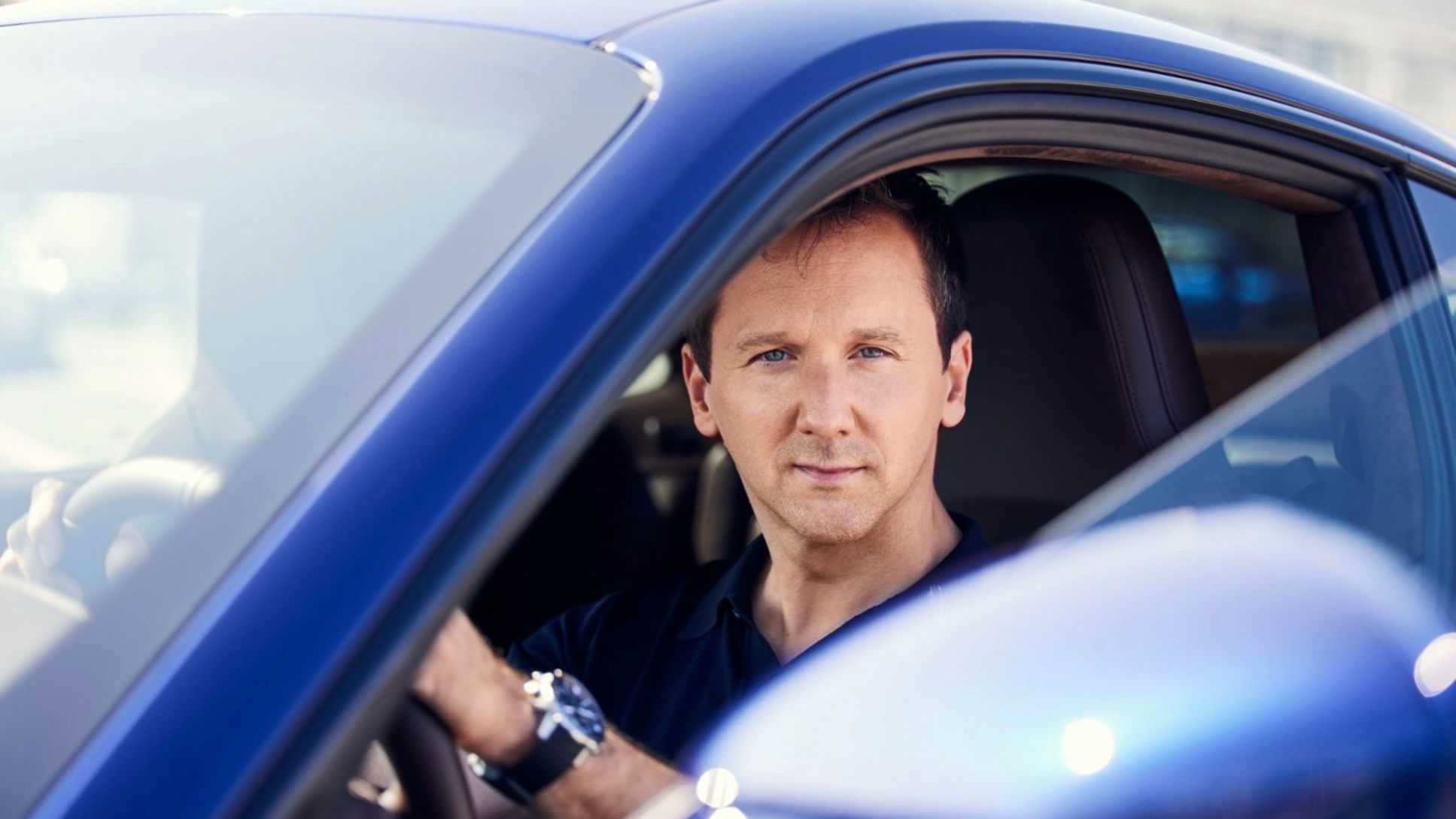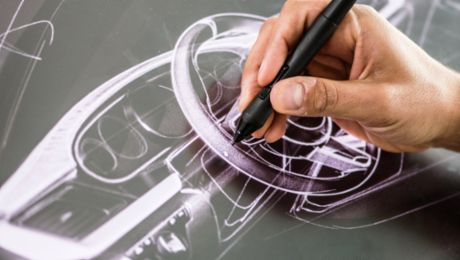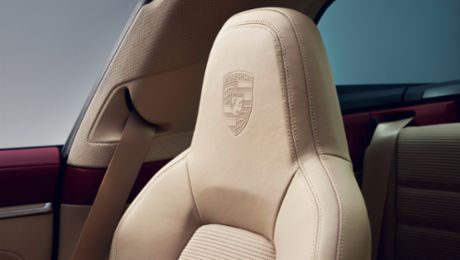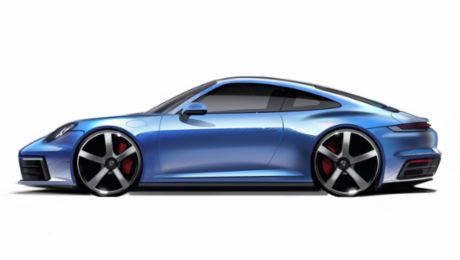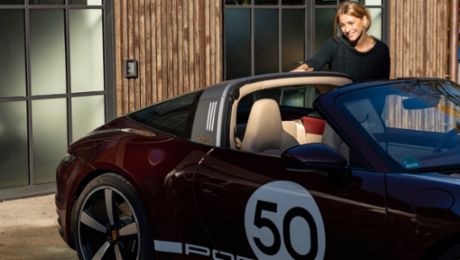Contours, silhouettes and proportions are Peter Varga’s speciality. On the terrace of the Porsche Museum's restaurant, the Director Exterior Design at Porsche quickly sketches the outlines of a 911 Turbo S on a piece of paper as he opens up about his passion: “I am interested in the flow of lines and how they can be balanced out. For example, how much tension a roof edge needs,” says the 42-year-old.
“The 911 has grown but it still has the same silhouette.“ Peter Varga
“What the driver can see of the body from the vehicle interior is very important,” he reveals. “For instance, the air intakes above the rear wheels can be seen in the side mirrors of the new 911 Turbo S so we paid particular attention to their design.” Varga, who studied Transportation Design in Pforzheim, Germany, and started working at Porsche as an intern 17 years ago, is nothing short of a perfectionist.
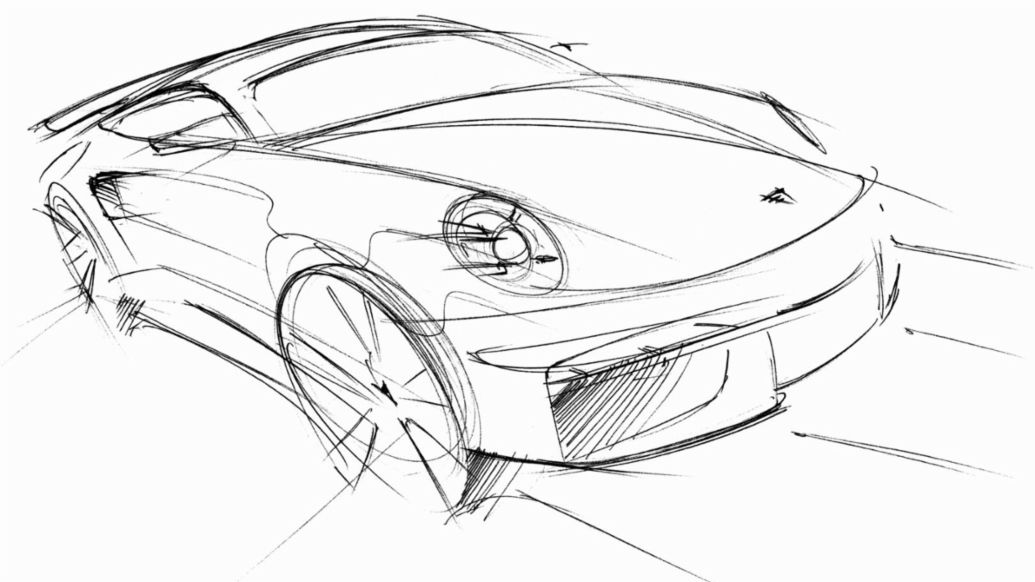
Anyone with even half an interest in cars or design could listen to Peter Varga for hours – and they would learn a lot in the process: about design, but especially about Porsche. He explains, for instance, how the mix of rim sizes in the 911 Turbo S – 22-inches at the rear and 21-inches at the front – further enhances the vehicle’s sportiness due to the visual effect the slope creates.
The particular complexities of the 911 Turbo S
As he chats to the Porsche Close-up film crew against the backdrop of the Museum, Hungarian-born Varga emphasises his words with hand gestures and smiles with his eyes – perhaps because he likes what he sees. On the forecourt, a dark green 911 Turbo 3.0 Coupé from 1976 is parked tail-to-tail with a new 911 Turbo S in Gentian Blue metallic. As it sits aside the museum piece – a special edition G model once registered for Ferry Porsche – the modern 911 hints at the challenges faced by the exterior design team, each time a new generation is born.
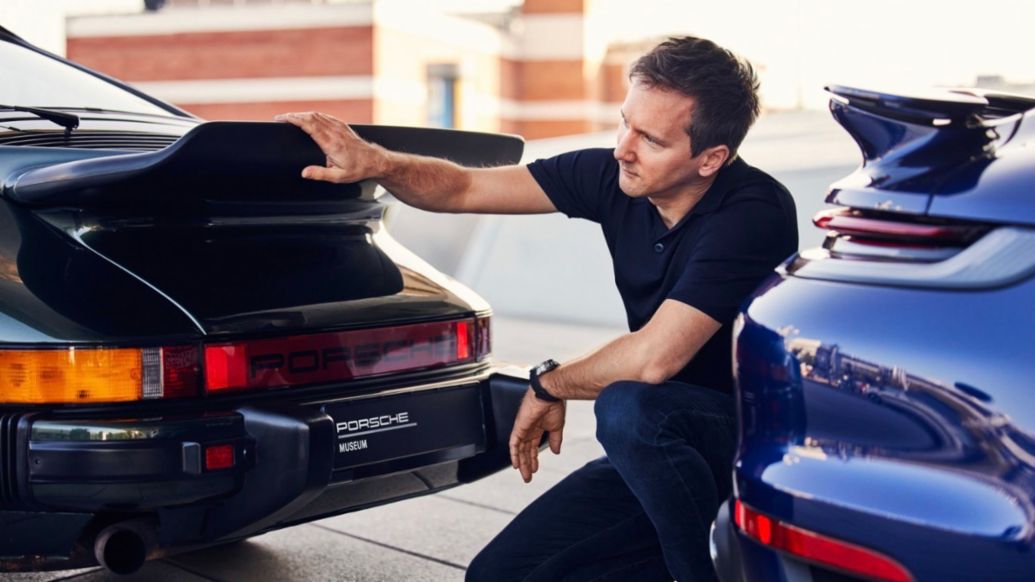
“A car should not be too big – even by a millimetre,” Varga states. “We try to leave out as much as possible”. The clean design of the purist 911 model series, along with its suitability for everyday use, are among the key design objectives, according to Varga. Not to mention the preservation of the traditional values and features of Porsche, such as the round headlights. Nevertheless, the difference between the two Turbo models in front of the exterior design chief could not be greater. “The 911 Turbo S is the widest Porsche 911 ever,” says Varga, “the wide rear axle and the expansive rear emphasise the power of this vehicle.”
The development process takes years
Varga’s workplace, and that of his 25-strong team – including exterior studio engineers, light designers and advanced designers – is located at the Porsche Development Centre in Weissach. The work here is carried out with a variety of media and platforms, both analogue and digital: with pencil and paper, on the computer in 2D and 3D, with augmented design, plasticine and clay – a material used regularly in automotive model making.
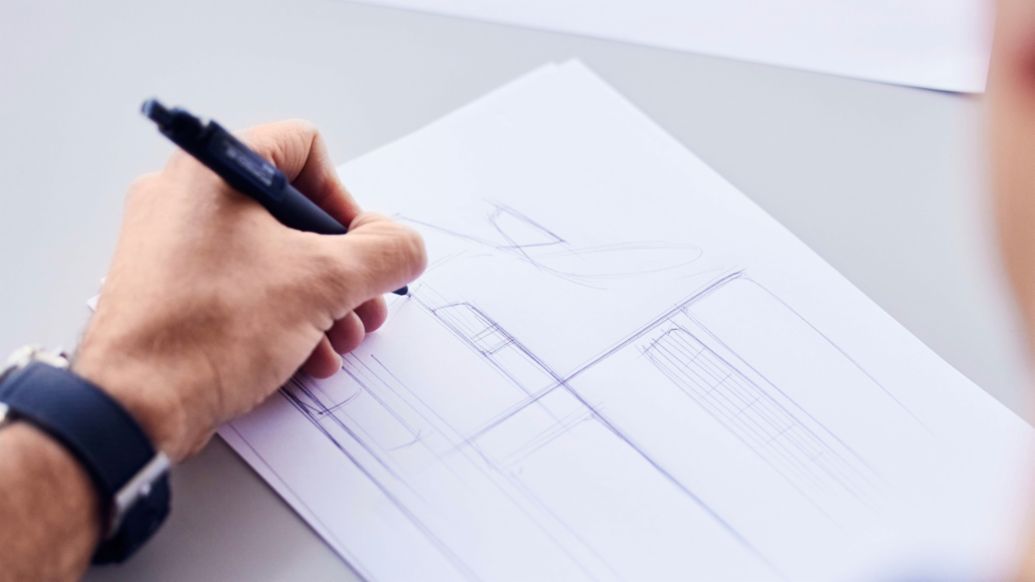
“During the design process, every square centimetre of a vehicle is discussed and must be coordinated in-house with many other departments,” explains Varga. The whole development process takes several years. “It is only when the results are seen later and everything works that we too are satisfied.” Is everything a question of creativity? No: dealing with technical limits and specifications plays a major role. The design of the Porsche 911 Turbo has also been the greatest challenge in his career to date and he admits “it cannot be more complex in terms of the compatibility of design and technology.”
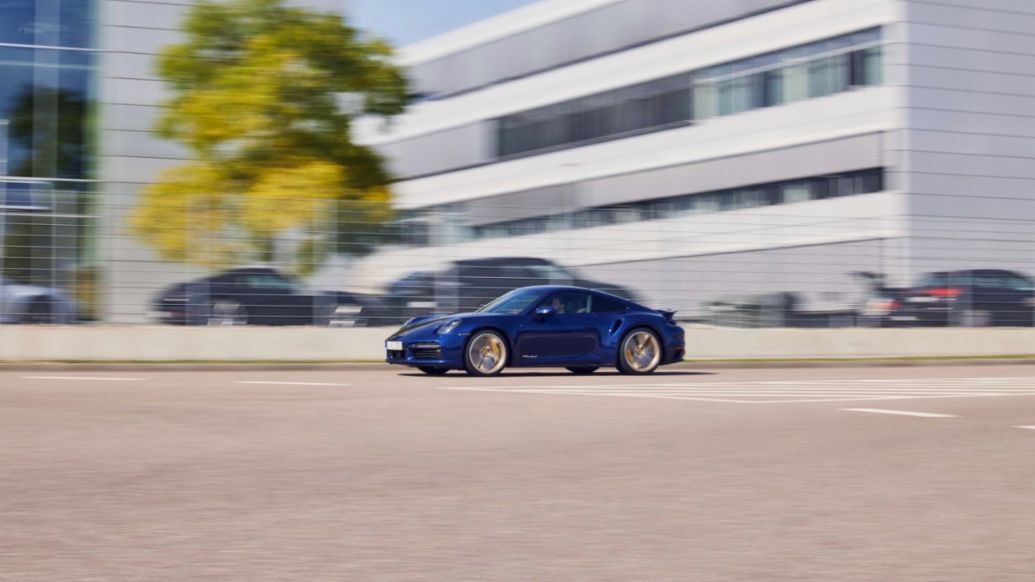
Outside of work, Varga isn’t one for sitting still. “I do sports that involve speed, such as running and wind surfing. When the wind is howling outside, I’m in a good mood,” he says. He also enjoys soundtracks, especially those of composer Hans Zimmer: “I find them inspiring.” It goes without saying that design is also an important feature of his home life, as the father of two daughters reveals: “My wife is also a designer; our furnishings are very minimalistic.” This does not make interior design choices easy. “It took us three years to find a dining table that we liked.”
Porsche also features at home. Varga’s four-year-old daughter, Naomi, prompted smiles all-round recently when she broke off from playing with a small Boxster model to ask her father: “Is that a Porsche or is it a car?” As he recounts the tale, Varga’s eyes smile again for the camera: “It’s at moments like that when I know for sure we do a good job.”
Info
Text first published in the Porsche magazine Christophorus, No. 397.
